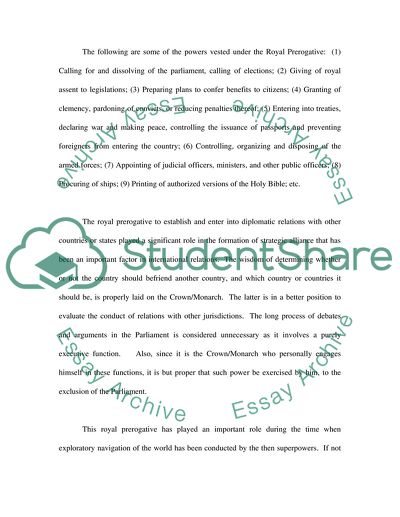Cite this document
(“Significance and Limitations of the Royal Prerogative Essay”, n.d.)
Significance and Limitations of the Royal Prerogative Essay. Retrieved from https://studentshare.org/law/1536474-constitution-law-essay
Significance and Limitations of the Royal Prerogative Essay. Retrieved from https://studentshare.org/law/1536474-constitution-law-essay
(Significance and Limitations of the Royal Prerogative Essay)
Significance and Limitations of the Royal Prerogative Essay. https://studentshare.org/law/1536474-constitution-law-essay.
Significance and Limitations of the Royal Prerogative Essay. https://studentshare.org/law/1536474-constitution-law-essay.
“Significance and Limitations of the Royal Prerogative Essay”, n.d. https://studentshare.org/law/1536474-constitution-law-essay.


